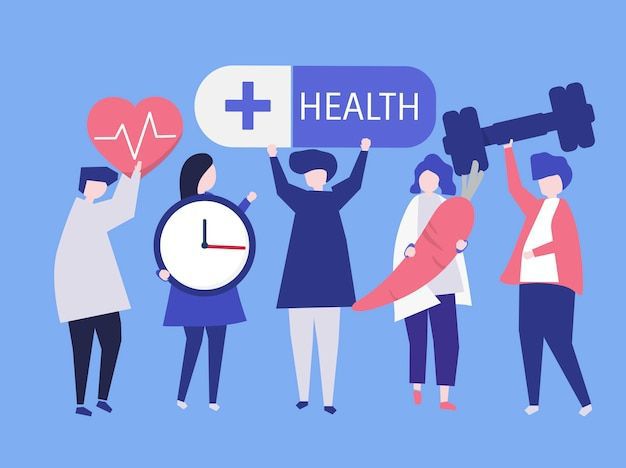
Turning 40 isn’t the beginning of the end — it’s the beginning of a whole new chapter. For many women, this is the age when life feels more stable, wiser decisions come naturally, and self-confidence is at its peak. But, biologically speaking, your body also starts going through a few changes that deserve attention.
This guide will walk you through everything you need to know about staying healthy, happy, and energetic after 40 — from nutrition and exercise to mental wellness and preventive care.
—
1. Understanding Your Body After 40
Your 40s can be empowering, but they also bring physiological shifts you can’t ignore.
Hormonal Changes
Around this time, many women enter perimenopause — the transitional phase before menopause. Estrogen and progesterone levels start fluctuating, which can cause:
Irregular periods
Hot flashes
Mood swings
Sleep disturbances
These changes are natural but can be managed with lifestyle adjustments and medical guidance.
Metabolism Slowdown
Your metabolism starts to decline slightly, meaning your body burns fewer calories at rest. This makes it easier to gain weight, especially around the midsection.
Bone Density Decline
From your 40s onward, bone density begins to decrease, increasing the risk of osteoporosis. Calcium, vitamin D, and resistance training become essential.
Skin & Hair Changes
Collagen production slows, leading to fine lines, dryness, and loss of elasticity. Hair may become thinner or drier due to hormonal shifts.
—
2. Nutrition for Women Over 40
Food becomes more than fuel — it’s your main defense against age-related issues.
Boost Your Protein Intake
Protein helps maintain lean muscle mass, which declines with age. Include:
Eggs, fish, poultry
Lentils, beans
Greek yogurt, tofu
Get Enough Calcium & Vitamin D
These are crucial for bone health. Aim for:
Low-fat dairy or fortified plant-based milk
Leafy greens
Sunlight exposure for natural vitamin D synthesis
Healthy Fats for Hormonal Balance
Opt for omega-3 rich foods like salmon, chia seeds, and walnuts. These support heart health and reduce inflammation.
Fiber for Digestion & Heart Health
Whole grains, fruits, vegetables, and legumes help regulate cholesterol and keep digestion smooth.
Stay Hydrated
Drink at least 2–2.5 liters of water daily. Proper hydration supports skin health, kidney function, and energy levels.
—
3. Fitness After 40 – Stronger, Not Just Slimmer
Your fitness goals should shift from “just losing weight” to building strength, stamina, and flexibility.
Strength Training
At least 2–3 times a week. Lifting weights or doing bodyweight exercises like squats and push-ups helps preserve muscle mass and bone density.
Cardio for Heart Health
Aim for 150 minutes of moderate-intensity cardio weekly — brisk walking, cycling, swimming, or dancing.
Flexibility & Balance
Yoga, Pilates, or simple stretching routines improve mobility, prevent injuries, and support posture.
Listen to Your Body
Avoid overtraining. Recovery is as important as exercise at this stage.
—
4. Mental & Emotional Wellness
Your mental health is just as important as your physical health.
Mindfulness & Meditation: Reduce stress and improve emotional stability.
Hobbies & Learning: Keep your brain engaged — take a class, learn a language, or try creative arts.
Social Connections: Maintaining friendships and family bonds can lower stress and improve overall well-being.
Seek Support: If you face mood swings, anxiety, or depression, don’t hesitate to consult a therapist.
—
5. Essential Health Check-ups After 40
Preventive care can catch problems early.
Mammogram & Breast Exams – For early detection of breast cancer.
Bone Density Scan – Especially if there’s a family history of osteoporosis.
Cholesterol & Blood Pressure Checks – To prevent heart disease.
Blood Sugar Test – For diabetes screening.
Eye & Dental Exams – Vision and oral health decline gradually, so early care matters.
Thyroid Test – Thyroid disorders are more common in women after 40.
—
6. Common Health Concerns to Watch For
Menopause symptoms
Osteoporosis
Heart disease
Type 2 diabetes
Thyroid issues
Joint pain & arthritis
Being proactive is the key — lifestyle changes can significantly reduce risks.
—
7. Skin & Hair Care After 40
Aging gracefully doesn’t mean giving up on self-care.
For Skin:
Use sunscreen daily, SPF 30 or higher.
Choose gentle, hydrating cleansers.
Include antioxidants like vitamin C serum in your routine.
Moisturize regularly to lock in hydration.
For Hair:
Avoid excessive heat styling.
Use nourishing oils like argan or coconut oil.
Eat a diet rich in protein and biotin.
Consider gentle shampoos to avoid stripping natural oils.
—
8. Lifestyle Habits for Healthy Aging
Small, consistent habits make a big difference.
Sleep 7–8 hours nightly for recovery and hormonal balance.
Don’t smoke and limit alcohol.
Manage stress through meditation, deep breathing, or journaling.
Stay active throughout the day — take the stairs, walk during breaks.
Schedule “me-time” to recharge mentally.
—
9. The Emotional Shift – Why 40+ Can Be the Best Years
By the time you’re in your 40s, you’ve lived enough to know what truly matters. Many women find this decade brings:
Greater self-confidence
Better decision-making skills
Freedom from societal pressures
A deeper appreciation for health and relationships
—
Conclusion
Women’s health after 40 is about more than avoiding illness — it’s about thriving. With balanced nutrition, regular exercise, preventive care, and a strong focus on mental wellness, your 40s and beyond can be the most fulfilling years of your life.
Remember: Aging is inevitable, but how you age is largely in your control. Take small steps today, and your future self will thank you.
